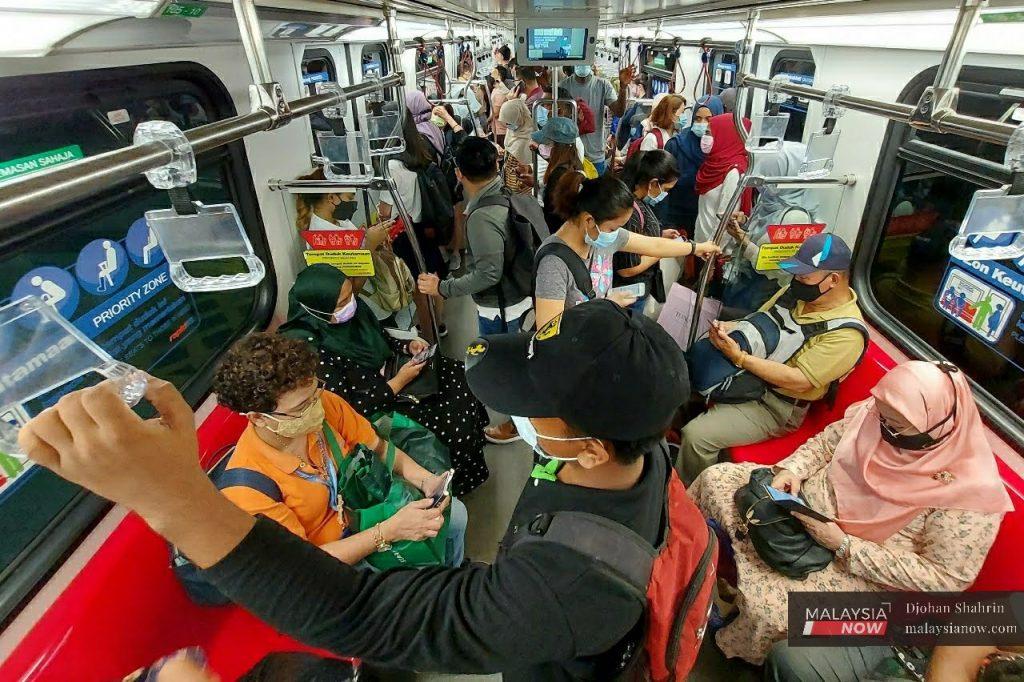The good and bad of taking to social media about mental problems
While sharing personal experiences can help foster a more open environment, there is also the danger that individual solutions will be taken as blanket treatments.
Just In
While sharing experiences of depression and loneliness on public platforms like Instagram and Twitter was once considered a taboo, the Covid-19 pandemic has changed everything.
These days, social media is filled with the stories of lonely people, people struggling to meet the expectations of those around them, and people who are short of time, money or both.
They share their experiences of being diagnosed with mental conditions, the medication they have been prescribed, and the lengths to which they must go in order to live a normal and meaningful life.
Psychiatric and psychological experts who spoke to MalaysiaNow said the trend of openness had grown since the onset of Covid-19, as more and more people lost their jobs, were separated from their families and friends, and struggled to deal with the demands of studies and work.
Dr Ahmad Rostam Md Zin also spoke in support of the trend, especially for those who have been officially diagnosed by health experts as having psychiatric problems.
However, he voiced reservations in the event that the trend gives rise to a negative narrative of psychiatric conditions and treatments.
He said psychiatric treatment was an individual matter which should not be applied across the board to others.
“For example, Patient A says taking Drug S causes him to have this problem and that. This might be the case for Patient A, but not for Patient B or C, and so on,” he said.
As social media users are quick to latch on to negative issues, he said, this could lead to a distorted perception of treatment and medication.
“This would be counterproductive to our efforts to encourage people to seek treatment,” he added.
The problem of loneliness is often associated with the youth, who are seen as isolated from society, having grown up in the digital age.
It is difficult to tackle as it could give rise to a host of other problems such as depression, anxiety, schizophrenia and bipolar disorder.
While it is not a mental illness in and of itself, it is frequently associated with conditions that arise due to a lack of social interaction.
Consequences
Speaking to MalaysiaNow, Rostam reiterated his warning for internet users to be careful about stories and posts shared on social media, maintaining that problems and diagnoses are unique to individuals.
He said the advice and views offered by even well-meaning individuals could lead to more problems as they might be relying on their own experiences and not the troubles of the other.
Fauziah Mohd Saad, a counselling expert from Universiti Pendidikan Sultan Idris, said nearly 70% of social media users are made up of youth who use the platforms to interact and gain new friends.
She said each shared experience should be evaluated based on the intent behind it, whether it is to reach out to others or merely to fish for sympathy.
“For example, if they get positive comments, they might be okay. But they will also have to accept the fact that they might get hurtful comments as well.
“Will they be able to accept this? When you decide to share your experience, you have to take responsibility for your choice.”
But the youth are not alone in this issue as adults, too, spend a great deal of time hooked to their gadgets.
International studies have shown that grownups tend to experience feelings of loneliness when they come across social media posts showing their friends participating in events such as weddings and family vacations.
Fauziah said the trend of sharing about such emotions had seen many coming forward to seek counselling and intervention for their mental state.
This in turn makes it easier for her as the sessions will involve two sides who are actively working together to solve the issue at hand.
Rostam meanwhile said that those who share their experience of attending therapy sessions should also state that they are giving only general advice.
He said such experiences should not be seen as a ticket to becoming unpaid counsellors to others. “This is dangerous and a form of manipulation,” he added.
He also urged internet users to have an open mind when reading the stories of others, and to be careful in their response.
“Don’t promote the unhealthy use of social media, for example through unsolicited fund raising and so on.”
Subscribe to our newsletter
To be updated with all the latest news and analyses daily.
